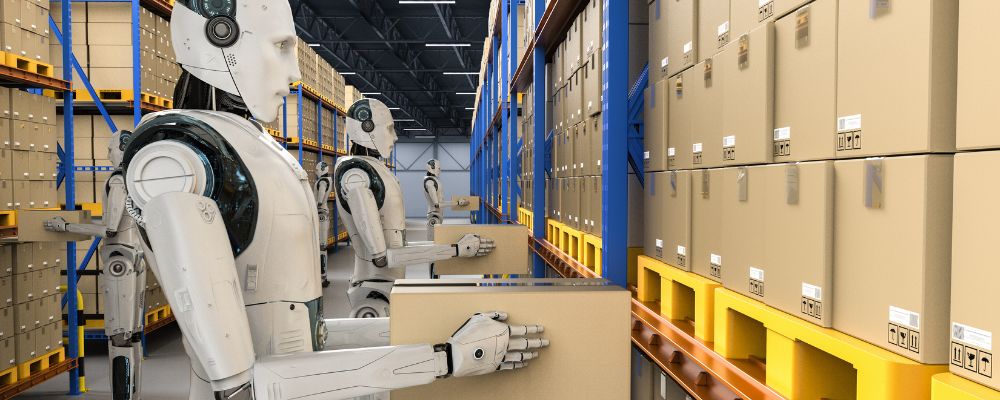
1. Automating Repetitive Tasks
One of the most immediate benefits of AI and automation is the ability to automate repetitive and mundane tasks, freeing up employees to focus on more strategic, high-value work. Automation tools can handle everything from data entry and customer service inquiries to email responses and social media posting.
- Robotic Process Automation (RPA): RPA uses software robots to perform repetitive tasks like data extraction, invoice processing, and updating customer records, reducing human error and increasing efficiency.
- Automated Marketing Tools: Platforms like HubSpot, Mailchimp, or ActiveCampaign allow businesses to automate email marketing campaigns, social media posts, and customer follow-ups, ensuring consistent engagement without manual input.
2. Enhancing Customer Service with AI-Powered Chatbots
AI-powered chatbots are becoming increasingly popular as businesses seek to offer faster, 24/7 customer service. Chatbots can handle common customer queries, assist with transactions, and resolve issues in real time, all without the need for human intervention.
- Customer Support Automation: AI chatbots like those provided by platforms such as Drift or Intercom can manage FAQs, product inquiries, and order tracking. Advanced AI chatbots can even handle complex requests by learning from previous interactions.
- Conversational AI: Voice assistants and AI-driven chat interfaces provide customers with an interactive experience, making it easier to navigate your services or products, improving customer satisfaction.
3. Personalized Marketing and Recommendations
AI enables businesses to provide personalized experiences by analyzing customer behavior, preferences, and past interactions. This data allows you to tailor your marketing messages, product recommendations, and content to individual customers, improving engagement and conversion rates.
- Personalization Engines: Tools like Dynamic Yield or Salesforce Einstein use machine learning to offer personalized product recommendations, emails, and landing pages, based on customer data.
- AI-Powered Ad Targeting: Platforms like Google Ads and Facebook Ads leverage AI to serve hyper-targeted ads to the right audience, optimizing ad spend and improving ROI.
4. Optimizing Supply Chain and Inventory Management
AI and automation can streamline supply chain management, making it easier to manage inventory, predict demand, and optimize delivery routes. Predictive analytics powered by AI helps businesses forecast inventory needs more accurately, reducing waste and improving profitability.
- Demand Forecasting: AI can analyze historical data, market trends, and consumer behavior to predict demand, helping businesses avoid overstocking or understocking products.
- Warehouse Automation: Automated robots and AI-driven systems can optimize warehouse operations, from picking and packing products to organizing inventory.
5. Improving Data Analysis and Decision Making
AI excels at analyzing large datasets quickly and efficiently, providing businesses with valuable insights and data-driven recommendations. By using AI for data analysis, businesses can make faster, more informed decisions that drive growth.
- Business Intelligence Tools: AI-powered business intelligence platforms like Tableau or Microsoft Power BI help analyze data and generate actionable insights, allowing businesses to make better decisions faster.
- Predictive Analytics: Predictive AI models can help identify patterns, forecast trends, and provide recommendations for product development, marketing strategies, and financial planning.
6. Streamlining Recruitment and Human Resources
AI and automation are transforming recruitment and HR processes, making it easier to find, hire, and retain talent. AI tools can screen resumes, schedule interviews, and even predict which candidates are most likely to succeed in your organization.
- AI Recruitment Tools: Platforms like HireVue and Ideal use AI to screen resumes, assess candidates via video interviews, and rank applicants based on their qualifications and suitability.
- Employee Engagement and Retention: AI can also help HR teams monitor employee engagement, predict attrition rates, and provide personalized career development plans for employees.
7. Automating Financial Processes
AI and automation can optimize financial management by automating tasks such as invoicing, expense tracking, and payroll processing. This not only reduces errors but also saves time and improves the accuracy of financial reporting.
- Automated Accounting Software: Tools like QuickBooks and Xero use automation to manage invoicing, reconcile transactions, and generate financial reports, reducing manual labor and ensuring accuracy.
- AI for Fraud Detection: AI-powered systems can analyze transactions and detect suspicious activity or potential fraud, helping businesses safeguard their financial data.
8. Predictive Maintenance for Equipment and Operations
For businesses that rely on machinery and equipment, AI-powered predictive maintenance can help prevent costly breakdowns and downtime. By analyzing data from sensors and equipment, AI can predict when maintenance is needed, reducing unplanned outages and extending the life of assets.
- IoT and AI Integration: Internet of Things (IoT) devices collect real-time data from machinery, which AI can analyze to predict failures and schedule maintenance before problems occur.
- AI for Operations Management: AI can also be used to optimize other operational processes, such as production scheduling, quality control, and energy management.
9. Improving Marketing and Sales with AI
AI and automation can enhance your sales and marketing efforts by helping you better understand customer behavior, target prospects more effectively, and close deals faster. Sales teams can use AI tools to identify the best leads, automate follow-up tasks, and predict which customers are most likely to convert.
- AI-Powered CRMs: Customer Relationship Management (CRM) systems like Salesforce and Zoho CRM use AI to track customer interactions, recommend next actions, and help sales teams close deals faster.
- Sales Automation: AI can automate routine sales tasks, such as sending follow-up emails, scheduling meetings, and updating CRM data, allowing sales teams to focus on building relationships with high-value leads.
10. Integrating AI in Product Development
AI can assist businesses in innovating and developing new products by analyzing market trends, customer feedback, and competitor activity. This allows companies to stay ahead of the competition by quickly adapting to market demands and improving product features.
- AI for Product Innovation: By analyzing vast amounts of data, AI can identify emerging trends, customer preferences, and pain points, allowing businesses to innovate and create products that meet evolving market needs.
- Product Customization: AI can help businesses create personalized product offerings by understanding individual customer preferences and adapting product features or services accordingly.
